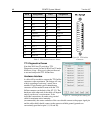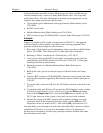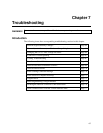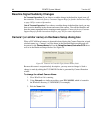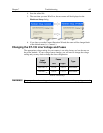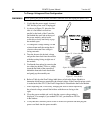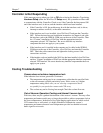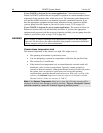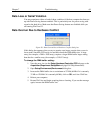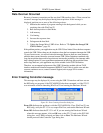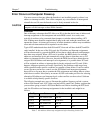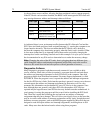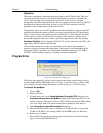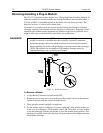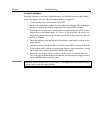
68 PI-MTE System Manual Version 4.C
If your PI-MTE is designed for in-vacuum applications: Vacuum deterioration is
normal for PI-MTE cameras that are designed for operation in vacuum chambers but are
temporarily being operated with a visible nose in air. The elastomer gasket between the
nose and the middle enclosure is not intended to provide a permanent vacuum. If you
have the appropriate equipment and personnel with the necessary expertise available,
you may pump down the camera at your facility (refer to steps 12-18 on page 94).
If your PI-MTE is designed for out-of-vacuum applications: The camera will have an
Indium seal between the nose and the middle enclosure. If you have the appropriate
equipment and personnel with the necessary expertise available, you may pump down the
camera at your facility (refer to steps 12-18 on page 94).
The CCD array is subject to damage from condensation if exposed to the atmosphere
when cold. For this reason, the camera should be kept properly evacuated or backfilled
with dry nitrogen, free of oil or other contaminants.
Camera loses temperature lock
The internal temperature of the camera is too high. This might occur if:
The operating environment is particularly warm.
You are attempting to operate at a temperature colder than the specified limit.
The coolant flow is insufficient.
If the camera loses temperature lock, an internal thermal overload switch will
disable the cooler circuits to protect them. Typically, camera operation is
restored in about ten minutes. Although the thermal overload switch will protect
the camera, users are advised to power down and correct the operating
conditions that caused the thermal overload to occur. With some versions of the
software, the indicated temperature when the camera is in thermal overload
(thermal switch is in the cut-out state) is -100° C.
Note: If the Detector Temperature dialog box is open, the following message will be
displayed in the box when thermal overload is detected: "Detector Overheated! Consult
operations manual or contact PI Technical Support if problem persists."
WARNING



